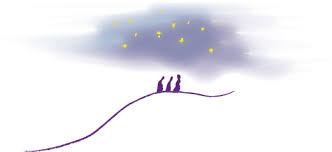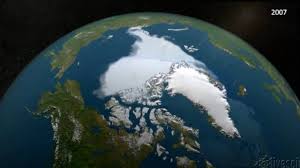Years ago, when Christmas was still Christmas, and I was just a wee boy stuck in my room in the attic because of the asthma, and everything else that was wrong with me, I had many visitors during the day that brought me meals and drinks and warm loving hand that took my temperature and tucked me into bed, but only one visitor at night that made my head spin.
Junior Angel Muddleduck was not your more conventional little fellow, inordinately proud of the extra inch in height that allowed him to lord it over other junior angels and for rhyme, he claimed to wear a battered crown. He wore coat and hat, vernal green in a way no longer seen, and had shamrocks in his sleeves and in every wrinkle of his face a twinkle that put you at ease. But I was scared. ‘Because I see you, does that mean I’m going to die?’
He laughed so much it took his body for a spin, and when he recovered I sat up in bed and began to grin. ‘Of course you are going to die. Dying is changing and changing is dying, but you’ve got to ask the reason why. Salvation is health and health salvation and into creation we pour our little equation. Winter strikes and growing things die, but in its beauty we see and feel the reason why.’
After that Muddleduck often came to my room, but I could never tell when or why.
‘Muddleduck,’ I said, ‘don’t wake me up like that.’ He stood beside my sickbed, tapping me on the forehead with the bowl of his clay pipe, until my eyes opened. The smell of tobacco should have made me choke and burn, but it went deeper, a scent that conjured up pictures of tramping through pine forests and somehow had me breathing easier.
‘How else would I waken you?’ he asked.
I hitched the blankets around my ears, frost crept inside the open window and nipped at my rosy nose, turned over in my bed and tried to ignore cold feet and the plumes of breath forming with each breathe.
‘Don’t be going back to sleep on me,’ he warned. ‘Have you not heard the saying that you never turn your back on an angel, because it can put you at the wrong angle, unable to see, the way things are meant to be? You know if we go anywhere you have always got somewhere to go and the night has brought its own light and snow to play. Get up and get your feet on the day, before it runs away.’
I sat up, pushed and pulled my way out the blankets and tight hospital corner and swung my feet out of bed. Yawning, with a hand over my mouth, mumbled: ‘None of your tomfoolery.’
He sucked on his pipe. ‘Good lad. Your need is that creed of discontent, waiting for the right event, to complain, but don’t worry, we’ll make a pixie out of you yet. The trouble with humans is yes means no and no yes and anything in between is anyone’s best guess.’
I found the only way to get on with Muddleduck was to agree with everything he said. There was always a reason for him not having a reason. The last time we sneaked out, for example, we’d found a diamond so big Muddleduck had to borrow a wheelbarrow from Mr Jenkin’s garden at 20 Overtoun and bring it back here. The diamond’s light, even at night, had left me blind the next day, and those that came, I heard them saying, they feared the worst. I tossed and turned and couldn’t settle until night time when he came back again.
For once I was waiting for him to appear. When I smelled wood smoke and a voice ringing and singing in the distance I knew he was sure to follow. ‘What did you do with the diamond?’ I asked when he appeared in my room.
‘You don’t leave a diamond of that size just lying around,’ he snorted, banging his shillelagh on the floor to give his words that extra resonance. ‘Sure, I buried it for safekeeping. Its legacy is intact and that’s a fact, as safe as safe can be, even from me.’
Junior angels are kings of burying and hiding things. They could hide your sock in your shoe and you’d never be able to find it. The problem was they wouldn’t be able to find it either. There was so much going on in their head they’d stumble on something else instead, such as a spider’s web that catches the sun. I got down on my knees and felt underneath my bed for my socks and shoes.
‘A sock’s missing!’ I looked up at his shamefaced grin.
‘Hell’s bells, but you know now what you did not before. Even if you find it you’d be daft to think its twin will not find a way to escape and walk away. C’mon, we best get crackin’’.
‘Where are we off to?’
I pulled open the wardrobe and took a thick wool pullover off the top shelf and pulled it over my striped pyjama top. The brown duffle coat was a present that smelled newish, leather straps on bone toggles not buttered by touch. I twisted them into place and buttoned them up to my throat and pulled the hood up. I didn’t want any clipe of a neighbour telling my mum that they’d seen me and an unknown heavenly body, sneaking out and night, sliding from the window of my room down a rainbow into the back garden.
Sammy the hedgehog was waiting to meet us his little feet stuck in the snow. ‘Whit kept you so long? I’ve been waiting four turns of the moon, and if you didnae come soon, I’d be a frozen turd. Hurry up, or we’ll be late for being early.’
Hedgehogs are like that, prickly, never contended. That was why he was best friends with Muddleduck, because he was never prickly and always contented.
‘If we hurry, we’ll get there before it’s gone.’ Sammy ran through the snow, leaving little sharp indents, and squeezed under a hole in the garden wall.
I found it hard to keep up. Snow took away all the sharp edges, but I slipped and slid in softness to find my feet in the muffled silence of a world being put to white. Angels walk faster than they run and can’t run without singing and prancing. But the moon, hung low, was full in the sky and I followed his tracks and listened to his off-key, poetic revelries of all that was lost and won. Muddleduck was sucking on his pipe, waiting for me by the park gates. Sammy tracks where on the other side and led towards the swing park and duck pond.
I slipped in front of him and he grabbed onto the arm of my duffle coat steadying me. I studied the thick chain with a coating of snow and large padlock on the park gates. ‘How are we going to get in?’
‘No bother. You’ll need to climb.’
‘But it’s awful high,’ I whined.
‘How do you know until you’re up there to say so.’ Muddleduck stuck his pipe at a jaunty angle in his mouth and pushed his back against the bars. His fingers were knit together into a cat’s cradle. It was obvious that he intended to boost me up and over that way. Angels are incredibly strong, but even using his body as a ladder and standing on his shoulders, I wasn’t. I couldn’t reach the horizontal of the top bar and was flapping and struggling to get a grip, almost toppling.
‘Stand on my head and take a breather and I’ll push with my heels and you’ll be higher than a squeal.’
I put a foot daintily onto his head. ‘But won’t it hurt?’
He laughed so much his pipe fell from and his mouth. I fell, tumbling down to the ground, thick curls of snow blanketing my fall. ‘I could have been badly injured!’
‘Humans are always standing on angels’ heads. That’s why they’re there and that why they’re square. Little man’s, big fall, does not add up to much at all.’ He jammed his pipe back in his mouth. Somehow it had become lit again and he giggled as he presented me with the cat’s cradle and his body as a climbing frame again.
Somehow I scrambled up and over the fence, landing on the other side. I looked through the railings at Muddleduck, wondering how without my help, he’d be able to climb up and over the fence. He shook the handle of the fence and the lock fell off, he unhooked the chain and stepped inside.
‘Why did you make me climb the fence?’
He marched away towards the playpark, falling Sammy’s tracks. I followed behind. An angel is always a step ahead of you. ‘You asked me to help get you over an incline, which I did and that way was fine, but now you’re moping and in a mood. Fine. Some people never offer a crumb of praise to you and that’s understood.’
Woodland creatures filled all the trees and bushes. Fairy folk made a path for us as we made our way through them. Between the slide, the roundabout and the swings was the wheelbarrow borrowed from number 20, with the diamond uncovered.
‘Beautiful, isn’t it,’ Muddleduck suggested. ‘Watch and see moonlight will climb inside and play and all creatures begin to sway. All fear will fall. All that is not right will be revealed in plain sight. For a moment or two all of heaven will sing to you. A flash and your world will turn to ash. That shaking will be your making. Ever after you will loss the mundane, the world will be your gain.’
The diamond began to glow and grow, green and pink, became red, and blue a violet instead. I was thrown backwards when the white light exploded into a million stars of the night, fragments piercing my eyes.
When I woke up in bed Muddleduck was away. I got out of bed and looked out the window, I heard mum coming up the stairs. Outside snow drifted and curled lazily down, bringing clouds to the ground. A world of white, quiet and contented initself. I saw Sammy the hedgehog poking his head out from underneath the garden hut next door. ‘You should be sleeping,’ I said to Sammy, a word of warning, even though he wouldn’t be able to hear me, because he was too far away, but Muddleduck had told me sometimes it’s best to just speak your mind.
When mum opened the door I saw the fear in her eyes. She was across beside me in a flash, palm of her hand against my forehead, running her hands up and down my arms and legs. ‘You should be in bed.’
‘Why?’ There was no longer a hitch in my voice, where the asthma had been. ‘I’m no’ tired. And I’m starving. Whit’s for breakfast?’
Mum got on her knees, flung her arms around me and hugged me so tight, rocking back and forward with her hand behind my neck it hurt. She started greeting and slobbering all over me. She let me go for a second and kissed both cheeks, with a snuffling sound.
‘It’s all right mum, I’m no’ that hungry. I’ll no’ eat everything.’
‘I thought I was going to lose you.’ Mum squeezed my warm hand.
‘How where was I goin’?’ I asked.
She didn’t answer, but I wasn’t that bothered. I thought I could ask Muddleduck later on, but I never saw him again except in flashes, when I smelled wood smoke and I saw evidence of his sneaking about.






